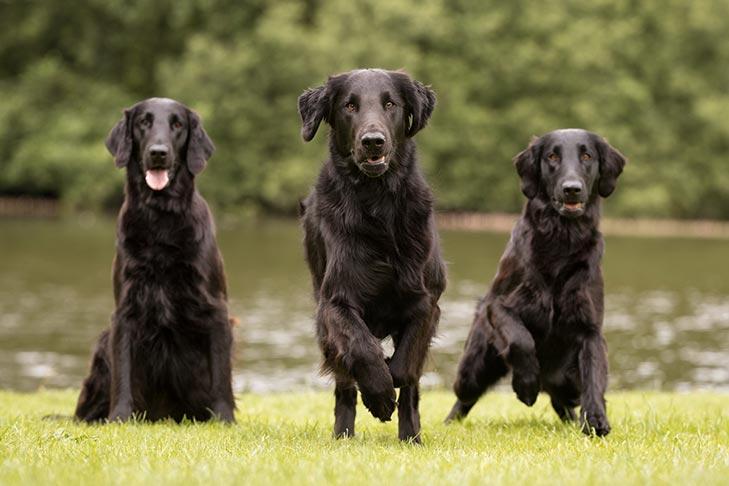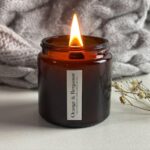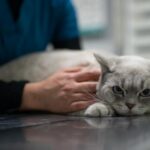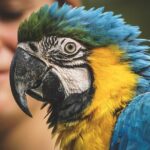Welcoming a new dog into your home is an exciting adventure, filled with love, laughter, and sometimes, a few challenges. If you’re considering a Flat Coated Retriever, you’re in for a treat! Known for their exuberant personalities and boundless energy, these dogs are a blend of playful spirit and unwavering loyalty. However, understanding their temperament is key to fostering a harmonious relationship between you and your new furry friend. In this guide, we’ll delve into the unique traits that define Flat Coated Retrievers, providing you with valuable insights on their behavior, socialization needs, and training tips.
Whether you’re a first-time pet owner or looking to expand your family with another four-legged companion, this comprehensive overview will help you navigate the wonderful world of Flat Coated Retrievers, ensuring a happy and fulfilling life together. Let’s embark on this journey to discover the delightful temperament of these charming dogs!
Table of Contents
- Understanding the Friendly Nature of Flat Coated Retrievers
- Embracing Energy: Keeping Your Flat Coated Retriever Active and Engaged
- Socialization Tips for a Well-Rounded Companion
- Managing Temperament Challenges: Training Techniques for Success
- Q&A
- Key Takeaways
Understanding the Friendly Nature of Flat Coated Retrievers
Flat Coated Retrievers are renowned for their cheerful disposition and amiable temperament. These dogs exude a sense of joy that is infectious, making them delightful companions for families, singles, and seniors alike. Their friendly nature means they are typically welcoming to strangers and other pets, often treating everyone they meet as a potential friend. This sociability is rooted in their history as hunting dogs, where teamwork and collaboration were essential traits. As a result, they are often eager to engage in play and enjoy the company of people and other animals.
To further illustrate their friendly characteristics, consider the following traits that make Flat Coated Retrievers exceptional companions:
- Playful Spirit: Their love for games and outdoor activities makes them excellent playmates for children.
- Affectionate Nature: They thrive on human interaction and are known for their loyalty and affection towards their families.
- Adaptable Behavior: They can easily adjust to various living situations, from busy households to quieter environments.
These inherent qualities not only make them lovable pets but also enhance their ability to form strong bonds with their human companions, ensuring a fulfilling and harmonious relationship.
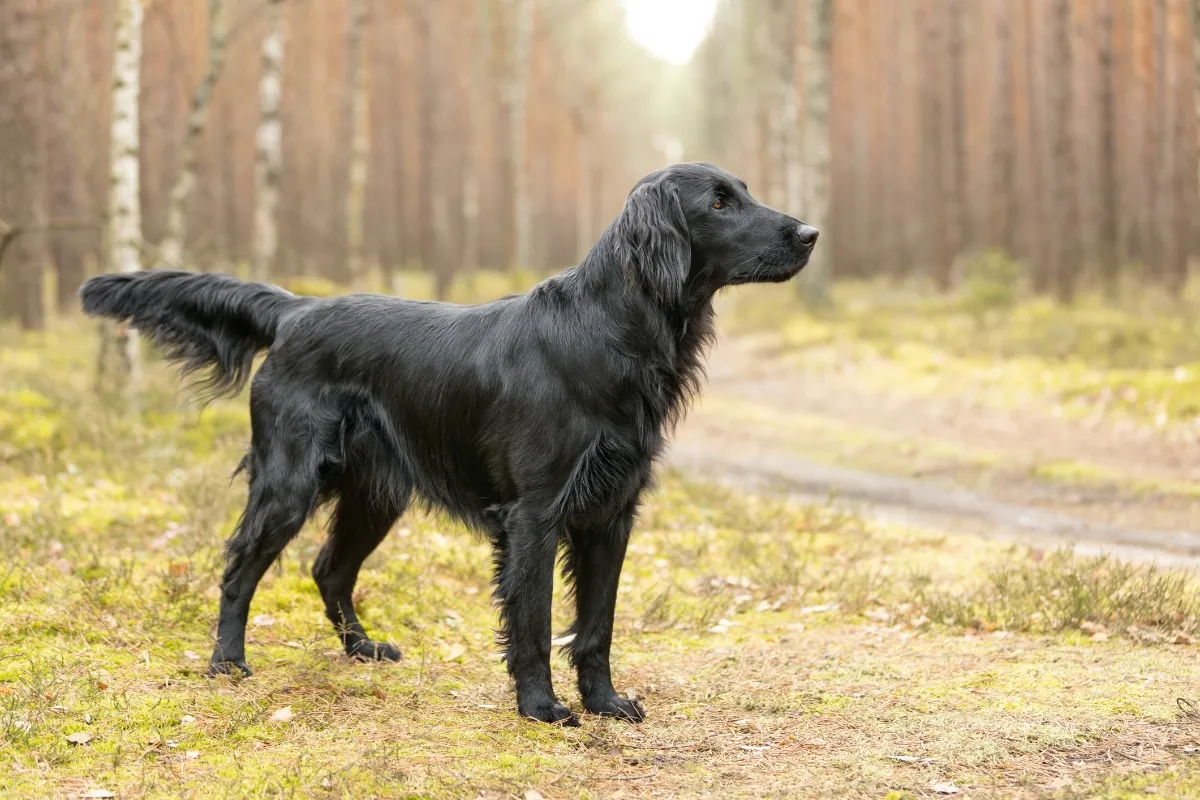
Embracing Energy: Keeping Your Flat Coated Retriever Active and Engaged
Flat Coated Retrievers are known for their exuberant energy and playful spirit, making it essential for owners to keep them mentally and physically stimulated. Engaging your furry friend in a variety of activities can help channel their boundless enthusiasm into positive behaviors. Consider the following engaging activities to keep your Flat Coated Retriever active:
- Daily Walks: Aim for at least an hour of walking every day to burn off excess energy.
- Fetch Games: Their natural retrieving instincts make games of fetch incredibly enjoyable.
- Agility Training: Set up a small obstacle course to encourage physical agility and mental focus.
- Interactive Toys: Puzzle toys can stimulate their minds and keep them occupied.
- Swimming: Flat Coats love water; regular swims provide great exercise and fun.
Incorporating socialization opportunities is also vital for their well-being. Regular playdates with other dogs or trips to dog parks can help develop their social skills and prevent behavioral issues stemming from boredom. Here’s a quick reference table of fun socialization activities:
| Activity | Benefits |
|---|---|
| Dog Parks | Teaches social skills and encourages play with peers. |
| Dog Classes | Enhances obedience and provides mental stimulation. |
| Group Hikes | Combines exercise with exploration in a social setting. |
| Playdates | Fosters friendships and allows for safe, supervised play. |
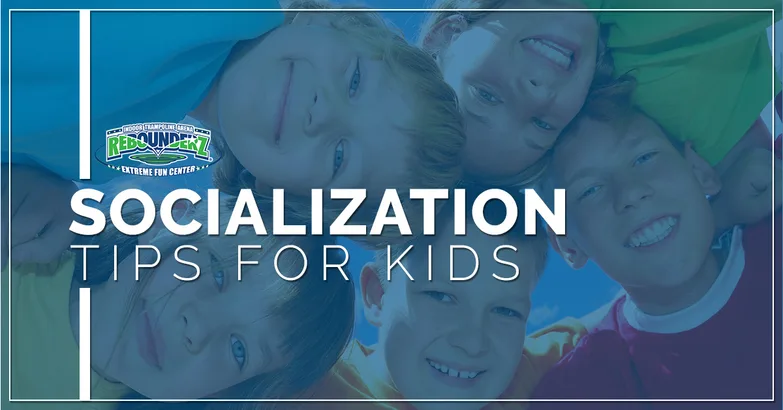
Socialization Tips for a Well-Rounded Companion
To ensure your Flat Coated Retriever becomes a well-rounded companion, early socialization is key. Start introducing your puppy to various environments, sounds, and experiences as soon as they arrive home. Here are some effective strategies to enhance their social skills:
- Expose them to different people: Organize playdates with family and friends, and expose your pup to children, adults, and seniors.
- Visit parks or pet-friendly places: Regular trips to parks can help your dog learn how to interact with other dogs and humans in a controlled environment.
- Enroll in puppy classes: These classes not only teach basic commands but also allow your puppy to socialize with others in a structured setting.
Monitoring your dog’s body language during these interactions is crucial; look for signs of stress or discomfort and intervene if necessary. To further aid in their social development, consider the following exposure activities:
| Activity | Description |
|---|---|
| Group walks | Join a local dog walking group to introduce them to multiple dogs and owners. |
| Obedience training | Participate in training sessions to reinforce good behavior and encourage interaction with new friends. |
| Puppy meet-ups | Attend local puppy meet-ups to promote friendly play and social bonding. |
Managing Temperament Challenges: Training Techniques for Success
Flat Coated Retrievers are known for their exuberant personalities, but their enthusiasm can sometimes lead to behavioral challenges. Training these loving companions requires a mix of patience, consistency, and positive reinforcement. Focus on establishing clear boundaries and commands early in their development to prevent any unwanted behaviors. Some effective techniques include:
- Positive Reinforcement: Reward desirable behaviors with treats, praise, or playtime to encourage repetition.
- Clicker Training: Using a clicker can help mark the exact moment your dog performs the desired behavior, making it easier for them to understand what you expect.
- Socialization: Expose your Flat Coated Retriever to various environments, people, and animals to help them develop confidence and reduce anxiety in new situations.
- Interactive Games: Engaging your dog in puzzle toys or agility exercises can help channel their energy positively while enhancing their problem-solving skills.
Addressing temperament challenges effectively requires understanding their unique traits. Consistency is key; ensure that all family members follow the same training methods to avoid confusion. Implementing a structured routine can greatly contribute to their sense of security, leading to calmer behavior. Additionally, consider the following strategies to foster a well-rounded temperament:
| Strategy | Description |
|---|---|
| Daily Exercise | Provide ample opportunities for physical activity to burn off excess energy. |
| Short Training Sessions | Keep sessions brief but frequent to maintain their attention and engagement. |
| Calm Environment | Minimize distractions during training to help them focus. |
Q&A
Q&A: Flat Coated Retriever Temperament – A Guide for New Owners
Q1: What is the general temperament of Flat Coated Retrievers?
A1: Flat Coated Retrievers are known for their friendly, outgoing, and playful nature. They are highly social dogs that thrive on human interaction and enjoy being part of family activities. Their cheerful disposition makes them excellent companions for families and individuals alike.
Q2: Are Flat Coated Retrievers good with children?
A2: Absolutely! Flat Coated Retrievers are generally very gentle and patient with children. Their playful attitude makes them great playmates, and they tend to have a natural instinct to protect little ones. However, as with any breed, supervision during playtime is recommended, especially with very young children.
Q3: How do Flat Coated Retrievers interact with other pets?
A3: Flat Coated Retrievers are typically very sociable and can get along well with other dogs and pets, provided they are properly socialized from a young age. Their friendly nature allows them to adapt to various living situations, though early introductions to other animals are key to fostering positive relationships.
Q4: How much exercise do Flat Coated Retrievers need?
A4: These active dogs require a good amount of exercise – ideally at least an hour of vigorous activity each day. They love to run, fetch, and swim, so incorporating playtime outdoors is essential. Regular exercise helps keep them physically healthy and mentally stimulated, which is crucial for their overall temperament.
Q5: Are Flat Coated Retrievers easy to train?
A5: Flat Coated Retrievers are intelligent and eager to please, making them relatively easy to train. However, their playful nature can sometimes lead to distractions during training sessions. Positive reinforcement techniques, such as treats and praise, work best with this breed. Consistency and patience are key!
Q6: What are some common behavioral traits of Flat Coated Retrievers?
A6: This breed is known for being enthusiastic, clever, and occasionally a bit mischievous. They may exhibit a “puppy-like” attitude well into adulthood, so expect lots of energy and playful antics. They can also be quite vocal, communicating their excitement or needs through barking.
Q7: How can I help my Flat Coated Retriever stay well-adjusted?
A7: Socialization is crucial for Flat Coated Retrievers. Expose them to various environments, people, and other animals when they are young to help them build confidence. Additionally, providing regular mental stimulation through training games, puzzle toys, and outings can help prevent behavioral problems.
Q8: What personality traits should I be aware of in adult Flat Coated Retrievers?
A8: As they mature, Flat Coated Retrievers often become more mellow but retain their playful spirit. They are loyal and affectionate and tend to form strong bonds with their families. Some may also exhibit a stubborn streak, which can be managed through positive reinforcement training.
Q9: Are there any health concerns associated with Flat Coated Retrievers that might affect their temperament?
A9: Flat Coated Retrievers can be prone to certain health issues like hip dysplasia and certain types of cancer. These health concerns can affect their energy levels and overall behavior. Regular veterinary check-ups and a healthy lifestyle can help mitigate these risks, ensuring a happy and active life.
Q10: What should I consider before bringing a Flat Coated Retriever into my home?
A10: Before adopting a Flat Coated Retriever, consider your lifestyle and activity level. These dogs need ample exercise, companionship, and mental stimulation. If you can provide a loving, active environment and are prepared for the commitment they require, you’ll find a loyal and joyous addition to your family!
Feel free to ask more questions or seek additional details about Flat Coated Retrievers and their wonderful temperament!
Key Takeaways
understanding the temperament of a Flat Coated Retriever is essential for any new owner hoping to forge a fulfilling bond with their furry companion. These dogs are renowned for their joyful disposition, intelligence, and playful nature, which make them wonderful family pets and loyal friends. By providing them with consistent training, plenty of socialization, and ample opportunities for physical and mental exercise, you will help nurture their natural exuberance and affection.
As you embark on this exciting journey with your Flat Coated Retriever, remember that patience and understanding are key. Every dog has its unique personality, and getting to know your new friend will be a rewarding experience. With love, care, and the right guidance, your Flat Coated Retriever can thrive and bring endless joy to your life. Welcome to the world of this spirited breed—prepare for a lifetime of companionship marked by laughter, adventure, and unconditional love!




